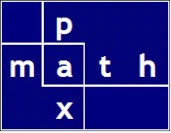Several years back, I did pipe stress work related to hydrogen reformers. We typically specified 800H material for the inlet ’trombones’ and 800HT material for the outlet ‘downcomers’. The inlet design temperatures were 1050F, the outlet design temperatures were 1650F. Of course, with such high design temperatures, the allowable stresses were quite low. To the point, these designs were difficult to optimize. In each case, I would want to make the pipe routing as short as possible. In addition, I would want the downcomers to have the minimum number of spring supports. And, yes, less material would incur less cost. I thought that Caesar II should have a ‘calculus option’ allowing a variation in one or more of the element specifications. I wondered, recently, if any pipe stress analysis software allows for such calculus. Disclaimer: I have not used Caesar II in several years; I haven’t used AutoPIPE at all.
https://docs.hexagonppm.com/r/ru-RU/CAESAR-II-Users-Guide/Version-12/336226 Caesar II: the Optimization Wizard automatically chooses the most economical loop solution based on your target input. According to the documentation link above “This wizard allows you to specify the element into which the loop should be incorporated, the loop type, the item to be optimized – nodal stress or restraint load, and the target value to which the item should be optimized. The optimization routines run the analysis several times to arrive at an acceptable loop size such that the code stress or restraint load on the target element is at the specified limit. Besides offering the opportunity to specify various loop configurations and a selection of height to width ratios, the wizard also provides an option to allow CAESAR II to select the most economical (based on length of pipe and number of bends) of those possible.”
AutoPIPE: the Support Optimizer enables you to quickly evaluate multiple support arrangement alternatives. Excerpt from the documentation link above: AutoPIPE’s Support Optimizer focuses on reducing the cost of supports and installation, while complying with the stress parameters that we have indicated, which are:
Turns out, at least two companies offer optimization features.
Caesar II
AutoPIPE
More Detail
Imagine this elementary problem in pipe stress: design an otherwise straight run of pipe in a pipe rack utilizing an ‘expansion loop’, Now, minimize the size of the loop. This problem presents two independent variables (length and width) and one objective, minimizing overall pipe length.
There are likely a handful of loop sizes that satisfy the design specs, the design code, and the practical geometry requirements.
Even in this basic example, a calculus option would be useful to the engineer; the handful of possibilities could be examined, maybe modified, and certified acceptable.
Calculus would definitely generate benefits in the more difficult pipe stress problems.
In the case of the downcomer, there might be a single fixed support and say 4 spring supports: in this case, we would have independent variables related to the pipe geometry and the support locations within that geometry, maybe 10 independent variables at most. Here, the objective might be routing length and/or a calculated cost. Several runs in a ‘calculus mode’ might lead to an acceptable solution — or, at least, a consensus toward the feasible solutions.
Nowadays, AI provides assistance in most every aspect of life, therefore, it must certainly be feasible mathematically in this area of engineering.
The idea is intriguing.

